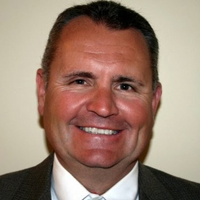By Sarah Brenner, JD
IRA Analyst
Whether by choice or necessity, many Americans are still working long beyond what has traditionally been retirement age. If you are a member of this group, you may be keeping funds in your employer plan well into your seventies and maybe even later. There are some big benefits to extending a career. You can continue to contribute to your retirement account and may even be able to take advantage of rules that allow required minimum distributions (RMDs) to be delayed.
Eventually, however, the time will likely come when you will want to take some or all of the funds out of your plan. You may want to roll over those funds to an IRA. A large percentage of employer plan funds do end up in an IRA eventually. At that time, you will need to pay special attention to your RMD if you have one for the year. Failing to follow the rules for your RMD can result in adverse tax consequences and penalties.
The first thing to understand is that if you have an RMD from the plan for the year, you will need to take that RMD. It is NOT eligible for rollover to an IRA. It cannot be converted to a Roth IRA. The bottom line is that there is no way around it, you must take it.
The next thing to know is that the first money out of your plan is your RMD. This is called the first-money-out-rule and many people run afoul of it. You cannot roll part of the funds over now to an IRA and take the RMD later from the plan. You cannot roll over your entire plan balance to your IRA and then take the RMD from the IRA later. If you do either of these, you will wind up with an excess contribution in your IRA. That can mean penalties if it is not corrected on time.
Your plan RMD cannot be aggregated with RMDs from your IRA. This means you cannot take it from your IRA. Also, qualified charitable distributions (QCDs) are not available from plans. They are only available from IRAs.
Once you have taken your RMD, you may roll over the remainder of your eligible plan funds. When they are deposited to your IRA, they become IRA funds and will be subject to all the IRA rules. There will be no IRA RMD due for the funds rolled over to the IRA for the year of the rollover. However, in years going forward, RMDs would be due on these funds just like any other IRA funds.
Moving your retirement account funds can be tricky. This is especially true when there is an RMD involved. If you have questions about your own situation, the best way to get it right and avoid costly mistakes is to consult with a financial or tax advisor who is knowledgeable in this specialized area.
https://www.irahelp.com/slottreport/rolling-over-your-plan-pay-special-attention-your-rmd

